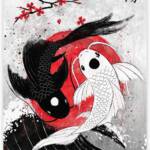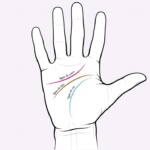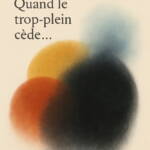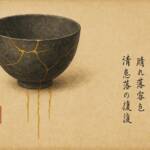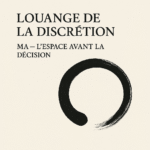Four intense months, condensed into seven minutes of reading: a “convenience store” format, like in Japan. Quick, yet rich and varied, with everything you need to nourish the mind before heading back on the road.
The coffee still steams on the marble table. The gardens of La Mamounia unfold like an ancient poem—palms standing tall, orange trees in silent prayer, ochre light stroking each leaf. It is Sunday, August 24. Everything looks still, and yet everything trembles: the threshold of a new season. I feel that strange mix of anticipation and joy, like before the curtain rises. But this time, I refuse to play Sisyphus, endlessly exhausted. I want to reinvent the stage, light it with joy and with lightness.
Since May, my being has changed its texture. It broke, then reassembled in fragments. I began by writing about the hardest victory, the one nobody celebrates: the victory over oneself. Not a visible triumph, but a naked, almost brutal lucidity. Then came the blank page, that vertigo that forces you to breathe differently, to place the first word like one places the first step. Then came the pivot, that pardon one grants oneself when a fixed plan becomes a prison: letting go, setting free, starting again.
I learned—almost—the art of discretion. Ma, the Japanese notion of the fertile interval, showed me that emptiness is sometimes more generous than fullness. I began to look at my fractures differently: not as scars to be hidden, but as golden lines, a kind of sensitive braille, telling their own story. Kintsugi taught me that one can inhabit their breakages, turn them into living veins of meaning.
I also knew the overflow, the moment when the body reminds you of its fragility. There, the word hamdoulah—thanks to God—took its rightful place: gratitude for each breath returned, each tension released. I realized that success is not only measured in balance sheets, but in the tenderness of a glance restored to life.
With Hobbes and Smith, I examined my instincts and my ethics. I chose the loyal wolf over the predator; I welcomed within me the impartial spectator who watches in silence: would I be proud of myself if I saw myself as another? It was a moral anchor, quiet but essential. And I accepted to suspend, with a non-article, the tyranny of rationality: to float, to drift, to breathe.
Then, in the light of fidelity, I walked in white in Tétouan, among hundreds of dignitaries. It was not just a personal honor, but a collective breath, an ancient pact renewed. I dedicated it to my daughter, to the youth, to my colleagues, to my partners. A reminder that fidelity is not constraint—it is root, and it is also fidelity to oneself.
In early August, I laughed at myself with a “Quick Curriculum,” a résumé of accidental scams and end-of-month improvisations. I understood that our true diplomas are measured in the scars we carry, the loyalties we keep, the sleepless nights we survive. And with Picasso, Nietzsche, Seneca, I discovered that youth is not behind us: it must be found again, light and renewed, after the storm.
And then came Japan. Tokyo with its disciplined crowds, Osaka with its generous excesses, Kyoto with its whispering temples, and Fuji, the shy goddess who hides in order to reveal herself. There I saw the precision of a gesture, the beauty of transmission, the dignity of a fracture gilded with gold. I was struck by the feeling that vacation and labor are not opposites—they breathe together, like inspiration and expiration, contemplation and action.
, whom I’ve returned to, reminds me that the tragedy of the lover is waiting for a sign; but I decided, after the Japanese journey, to make my choice: to undertake my love for life itself, and in the process to rekindle my love of enterprise. Not to fill a void, not to answer an expectation, but to undertake with Purpose: with the conviction that every project, every gesture, every alliance can become a way of loving, of giving meaning, of turning our labors into a shared celebration.
And so here I am, this morning, at La Mamounia. The coffee cools slowly, the garden hums with an ancient silence. All these fragments come together. I do not return to prove, but to share. Not to chase after paths, but to lay down markers.
So here, in this garden, I make a wish. That the future may grant me sincerity and kindness—that double sap which gives human roots their just impulse. That they may wrap themselves in a cloud of lightness. That they may water the wounds, like a gardener tending soil, and make hope grow. That they may remind us that life, even broken, can be pieced back together differently—softer, more fertile.
And so I set down my cup. The coffee has cooled, but the day opens bright: a rentrée like a feast. A feast of work, a feast of breath, a feast of joys regained.
Postscript
For those wondering about my nod to the “7-Eleven”: a convenience store in Japan is far more than a corner shop. Open day and night, found at every street corner, it’s where you can walk in for a few minutes and walk out equipped for the day—a rice ball, a coffee, a notebook, a phone recharge. More than commerce, it has become a quiet cult, an extension of Japanese daily life. Quick, accessible, yet surprisingly rich and varied. That is why I saw in it a metaphor for these four months condensed into seven minutes of reading.

